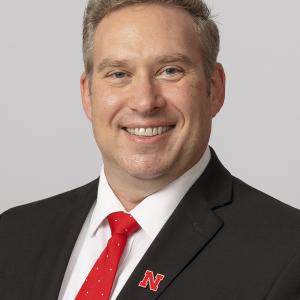About The Program
The Glenn Korff School of Music has an historic and continuing commitment to teaching and research in the area of pedagogy. This commitment naturally is integral to our approach to music education at all degree levels (BME, MM, Ph.D.) and, moreover, finds particular focus in three of our specific graduate degree programs---the MM in Piano Pedagogy and Performance, the Ph.D. in Music with an emphasis in Piano Pedagogy, and the Ph.D. in Music with an emphasis in Vocal Pedagogy.
Piano Pedagogy and Performance (MM Piano Pedagogy and Performance, Ph.D. Piano Pedagogy and Performance)
The Glenn Korff School of Music has an historic and continuing commitment to teaching and research in the area of pedagogy. The discipline of "Piano Pedagogy and Performance" has been an area of emphasis within our Master of Music degree for many decades, providing students with up-to-date knowledge in the field and preparing them for careers as performer-educators.
MM in Piano Pedagogy and Performance Application informationThe Ph.D. program prepares researchers, professors, performers and other professional leaders with the skills, values, and intellectual rigor needed for the most advanced leadership and investigation for music study. Thus the purpose of this more advanced degree emphasis is to not only provide students with a thorough grounding in the discipline of piano pedagogy, but also to provide them with a rigorous background in research skills and methodologies, while allowing for continued development of their performance skills. Students will be equipped with a doctoral-level education, encompassing theoretical knowledge, research skills, and practical applications to instructional settings. Our graduates are prepared for leadership roles as productive scholars and pedagogues in institutions of higher education, government, or community music schools.
Ph.D. in Piano Pedagogy Application informationFaculty
Piano Pedagogy is under the supervision of Dr. Brenda Wristen, Ph.D. She is (tenured) Professor of Piano and Piano Pedagogy and Coordinator of the Keyboard Skills program at UNL. Dr. Wristen holds the MM degree with a major in Piano Pedagogy and the Ph.D. in Interdisciplinary Fine Arts with a concentration in Piano Pedagogy, both from Texas Tech University (1995, 1998), and has earned recognition as a Nationally Certified Teacher of Music (Music Teachers National Association, 2002).
An active research scholar, Dr. Wristen’s research focuses on musician wellness issues, with particular interests in university music student health states and behaviors, the biomechanics of piano technique, and addressing the challenges of small-handed pianists. She is the co-author of the groundbreaking book Adaptive Strategies for Small-Handed Pianists, published by Oxford University Press (2017). Her research articles have been published in American Music Teacher, Medical Problems of Performing Artists, UPDATE: Applications of Research in Music Education, Music Education Research, Clavier, Keyboard Companion, and Piano Pedagogy Forum. She has also presented papers at numerous meetings of state, national, and international organizations, including Music Teachers National Association, the Performing Arts Medicine Association, the National Conference on Keyboard Pedagogy, the College Music Society, the Human Factors and Ergonomics Society, and the International Society for Music Education. Her work has been recognized with several awards, most notably the Discoveries and Breakthroughs Inside Science Award from the Human Ergonomics Society and the American Institute of Physics. Dr. Wristen is a member and former chair of the Committee on Wellness for the Pianist of the National Conference on Piano Pedagogy, a member of the Education Committee of the Performing Arts Medicine Society, and currently serves on the editorial board for American Music Teacher.
In addition to her teaching and research activities, Dr. Wristen is an active lecturer, adjudicator, and performer. Recent performances include a solo recital featuring works by Mozart, Granados, and Prokofiev and various collaborative appearances.
Vocal Pedagogy (Ph.D. Vocal Pedagogy)
Ph.D. in Vocal Pedagogy Application informationThe Ph.D. program prepares researchers, professors, performers and other professional leaders with the skills, values, and intellectual rigor needed for the most advanced leadership and investigation for music study. Thus the purpose of this more advanced degree emphasis is to not only provide students with a thorough grounding in the discipline of vocal pedagogy, but also to provide them with a rigorous background in research skills and methodologies, while allowing for continued development of their performance skills. Students will be equipped with a doctoral-level education, encompassing theoretical knowledge, research skills, and practical applications to instructional settings. Our graduates are prepared for leadership roles as productive scholars and pedagogues in institutions of higher education, government, or community music schools.
Faculty
Vocal Pedagogy is under the supervision of Dr. Kevin Hanrahan. He is (tenured) Associate Professor of Voice and Vocal Pedagogy at the Glenn Korff School of Music, where he has taught since 2005. He earned the BFA in Vocal Performance at Carnegie Mellon University (1997), and the MM in Opera Performance (2002) and the DMA in Vocal Performance (2005) at Arizona StateUniversity. Dr. Hanrahan is both an active concert artist and a published scholar. In addition, Dr. Hanrahan is the founder of the Glenn Korff School of Music Voice Lab. Research activities include a continuing investigation of the relationship between the second vowel formant and adduction, the effect of hearing in the training of singing, and the use of technology to assess vocal potential in young singers.
As a researcher and teacher, Dr. Hanrahan has presented at national and international conferences including the 8th International Congress of Voice Teachers Conference, “Use of Objective Measures in the University Voice Studio” – Brisbane, Australia – July, 2013; 8th International Congress of Voice Teachers Conference, “Using the Voice Range Profile in Assigning Repertoire” – Brisbane, Australia – July, 2013; International Society of Music Education World Conference, “Comparison of Objective Assessment and Subjective Assessment of Vocal Development in Collegiate Singers” – Thessaloniki, Greece – July 2012; International Society of Music Education World Conference, “Movement in the Choral Rehearsal and its Effect on Vocal Efficiency”, Poster paper, co-author with Jennifer Vanderholm and Therees Hibbard – Thessaloniki, Greece – July 2012; Australian Society for Performing Arts Healthcare and The Australian Voice Association Joint Conference, “Use of the Voice Range Profile in Assigning Repertoire” (Presentation) – Sydney, Australia – October 2011; Phenomenon of Singing International Conference, “Use of Voice Range Profile in the Voice Studio: Applications for Objective Instruction and Assessment” (Presentation) – St. John’s, Newfoundland, Canada – July 2011; International Society of Music Education World Conference, “Use of the Voice Range Profile in Assigning Repertoire: An Evaluation” – Beijing, China – August 2010; National Association of Teachers of Singing National Conference, “Use of the Voice Range Profile in Assigning Repertoire: An Evaluation”(Best Poster Paper) and “Effect of Auditory Feedback on Singing: A Preliminary Study” – Salt Lake City, UT – July 2010. At the National Association of Teachers of Singing National Conventions in 2010 his paper on the use of the voice range profile and tessituragram received the Best Poster Paper Award. Dr. Hanrahan is also published in the Journal of Singing published by the National Association of Teachers of Singing.

